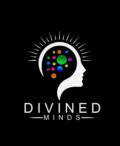Understanding Attention-Deficit/Hyperactivity Disorder (ADHD)
Attention-Deficit/Hyperactivity Disorder (ADHD) is a neurodevelopmental disorder that affects both children and adults. It is characterized by persistent patterns of inattention, hyperactivity,and impulsivity that can interfere with daily functioning and quality of life. While ADHD is commonly diagnosed in childhood, it can be persist into adolescence and adulthood,posing unique challenges to individuals and their families.
Definition of neurodevelopment Disorder :
Neurodevelopment Disorder are a group of diverse conditions that affects brain growth and function. These can cause difficulties with learning, behavior, memory, self-control,speech, or other aspects of health.
There are three subtypes of ADHD, each with its own set of symptoms.
1.Predominantly Inattentive Presentation:
•Difficulty sustaining attention in task or play activities
•Frequently making careless mistakes in schoolwork or other activities
• Forgetfulness in daily activities
2.Predominantly Hyperactive-impulsive Prevention:
•Fidgeting or tapping hands and feet.
•Difficulty remaining seated in situations where is expected.
•Impulsive behaviors, such as interrupting conversations or taking unnecessary risk.
Combined Presentation:
•A combination of both inattentive and hyperactive-impulsive symptoms.
Coping Strategies:
Living with ADHD presents unique challenges, but there are various coping strategies that can improve daily functioning:
Structured Routines: Establishing a consistent daily routine can help individuals with ADHD manage their time and tasks more effectively.
Organizational Tools: Planners, calendars, and reminders can assist in keeping track of responsibilities and deadlines.
Break Task into Smaller Steps: Breaking down larger tasks into smaller, more manageable steps can make them less overwhelming.
Regular Exercise: Physical activity has been shown to have positive effects on attention and impulse control.
Mindfulness and Relaxation Techniques: Practice such as meditation and deep breathing can help manage stress and improve focus.
Conclusion:
While living with ADHD may present challenges, it’s essential to recognize that individuals with ADHD often possess unique strengths and talents. With proper diagnosis, understanding, and support, individuals with ADHD can lead fulfilling and successful lives. Increased awareness and destigmatization are crucial in fostering a more inclusive and supportive society for those affected by ADHD.
Remember, if you suspect you or someone you know may have ADHD, seeking professional guidance is the first step toward understanding and managing this neurodevelopment disorder.
Everyone needs to be loved.
JS
